SPECTRUM / INDELIBLE MURTCEPS
Melbourne 1969-1973
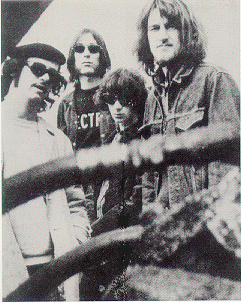
Spectrum's original lineup,
1970
(L-R) Lee Neale, Bill Putt, Mark Kennedy, Mike Rudd |
Mike Rudd (vocals, guitar, recorder, harmonica)
Bill Putt (bass)
Mark Kennedy (drums) 1969-70
Ray Arnott (drums, vocals) 1970-73
Lee Neale (keyboards, vocals) 1969-72
John Mills (keyboards) 1972-3
|
History
As readers will have guessed, Spectrum is one our favourite
Australian bands, and one of our missions here at Milesago is to
prosecute the cause of this outstanding group. During their short but
illustrious career Spectrum were in the vanguard of
progressive rock in Australia, and they left a legacy of innovative and
imaginative music, too little of which is currently available on CD.
The central figure in Spectrum was singer/songwriter/guitarist
Mike Rudd, one of the many outstanding expatriate
NZ performers who have contributed so much to the Australian music
scene. Mike arrived in Australia in
1966 as rhythm guitarist for the NZ group Chants R&B.
(For the full History of this great band, please visit the Chants
R&B page on Bruce Sergent's excellent New
Zealand Music of the 60's and 70's website.)
Chants only lasted a short time after they arrived in
Australia, but Mike remained in Melbourne, where he soon teamed up with
young singer-songwriter Ross Wilson and guitarist Ross
Hannaford. Their first band The
Pink Finks (which had also just broken up) worked in a
similar vein to Chants, and had some local chart success in
Melbourne. Mike was invited to be the bass player in a later lineup of
their next band, the short-lived but legendary Party Machine (1967-69).
This was followed by the more experimentally-oriented Sons of The Vegetal Mother
(1969-71).
Sons of the Vegetal Mother was an occasional project rather
than a full-time band, but Mike was apparently involved on a regular
basis, even after the formation of Spectrum, and he played bass on the
Vegetal's only recording, an ultra-rare EP called The Garden
Party, of which only about 250 copies were ever pressed.
Although close connections between them continued, by 1970 Wilson and
Hannaford were concentrating on the Vegetals new offshoot Daddy Cool,
so Rudd decided to put together his own band, continuing down the
progressive path he had been following with Party Machine and the
Vegetals.
Mike Rudd: "I had a
burning desire to put a band around some original material. That was
the only thing I was thinking of. I hadn't even thought of whether I
was capable of doing it or not. I was mainly impressed with how well
the Party Machine had worked on that level and I thought, well, I'll
try it."
"We were a professional amateur band, with the courage of our
convictions. We were aggressively original when it just
wasn’t fashionable to be like that. We were totally immersed
in what we were doing."
Although Mike later described the formation of the band as
"incredibly haphazard", his choices were all fortunate ones. Bassist
Bill
Putt, from Melbourne bands Gallery and The
Lost Souls formed a lasting friendship and musical
partnegsubip with Mike, and they have worked together ever since.
Organist Lee Neale happily left his current band, Nineteen
87, who were apparently scornful of his lack of 'pop image'.
A hotshot young drummer called Mark Kennedy, who
had already worked with Putt in Gallery, completed
the lineup. Kennedy's musical strength helped carry the band through a
difficult first
year, during which time the band honed their skills and found their
sound.
"Mark really carried us through the first
year because people would say 'Wow, look at that drummer, they must be
a good group.'"
"Mark was the central focus of the band 'cause he was such an
outstanding player. He used to play things like drum solos!, but he was
very good. By the same token, I was almost relieved to get away from
that 'cause the emphasis swung back to the material and the band in
general rather than one player."
Initially, Spectrum drew on the work of contemporary bands
like Traffic, Soft Machine and Pink Floyd
and they played covers of these groups in the early days, but they soon
outgrew these formative influences, developing their own highly
individual style. Many elements contributed to this –- their
synergistic playing style, the rock-solid yet supple rhythm
Putt-Kennedy rhythm section, Lee Neale’s superb keyboard
playing, Mike's skewed, rather Goonish sense of humour, which was
manifested in his wry song titles and lyrics, his expressive
finger-picked guitar, and of course his voice, one of the most
distinctive in Australian music.
Twelve months of gigging allowed them to polish their
performance and write and refine a substantial set of original
material, which became the basis for their first LP. They were regulars
at the concerts events held at the various "head"
venues around Melbourne like the TF
Much Ballroom,
Garrison and Sebastian’s,
and
they appeared with other leading progressive bands like Tully, Tamam
Shud and Sons Of The
Vegetal Mother.
Financially
though, the rewards were slim. Inspired by his time in the Vegetals,
Rudd had conceived Spectrum as a concert band, and they generally
performed with a large and costly set-up, which included a large PA and
a full multi-media light show. At one stage the band even supplemented
their act with members of the Melbourne performance troupe Tribe.
They played at all the major Australian rock festivals of the period,
including Wallacia,
Myponga,
Mulwala,
Rosebud and Sunbury.
However, their national success was
limited by the lack of ongoing radio support in other capitals, and the
fact that they rarely ventured outside Victoria, visiting other cities
only intermittently (probably because of the costs, and the lack of
suitable venues in other
cities).
Unfortunately for Spectrum, a major logistical problem was
emerging -- the focus of the Melbourne music scene undergoing a
profound shift. This was partly due to changes to the age of majority
(recently lowered in many states from 21 to 18) and to the licensing
laws governing entertainment in hotels in Victoria. These legislative
changes coincided with demographic changes -- the young audiences who
had patronized the unlicensed dances and discos in the mid-to-late
Sixties were now ageing into their late teens and early twenties, and
were therefore now able to enter licensed premises. Seeing the
popularity of rock music and
realising the financial potential, hoteliers went all-out to woo
customers into the pubs by putting on popular bands, often free of
charge. Consequently, even as Spectrum worked to establish themselves,
the focus was beginning to shift away from the larger concert events
and unlicensed city discotheques frequented
by 'head' audiences, whose main drug of choice was
cannabis, and towards the burgeoning pub circuit, where alcohol was
cheap, plentiful and, above all, legal. While the smaller pub venues
and their rowdy, combative atmosphere suited more 'aggressive' bands
like The Aztecs to a tee, the
erosion of the concert scene posed a major problem for Spectrum, whose
complex music and upscale presentation demanded both a larger audience,
and a reasonable degree of concentration from them. Consequently, as
the pub circuit began to boom, the bigger engagements that Spectrum
needed to survive became fewer and less
regular.
Despite a loyal following and much praise from the music press
(notably Go-Set)
the band were virtually broke by
mid-1970, when a measure of salvation came in the form of a contract
with to the new EMI progressive imprint Harvest.
Interviewed by Ian McFarlane in 1990, Mike reflected on this situation
and its influence on the formation of Spectrum’s alter-ego,
Indelible Murtceps:
"We had painted ourselves into a corner.
We touted Spectrum as a concert band, but the concerts were few and far
between. The pub scene was beginning to burgeon and we were looking
bankruptcy in the face, so we decided to do something about it. I felt
we should divide the material and take the load off ourselves. It was
considerably different for us. We used half the gear for a start."
Before being signed up by EMI, Spectrum had cut a demo single,
which they hawked around to record companies as a 7" acetate. One side
was an early, folky version of one of the newer songs in their set, I'll
Be Gone; the flip was another original, "You Just
Can't Win". According to Ian McFarlane, these acetates are now
"impossibly rare" with only two or three copies known to have survived.
"You Just Can't Win" was reissued to subscribers to From
The Vault magazine on a 7” flexidisc in 1990,
accompanied by the almost equally rare Vegetals track "Let It
Begin", from their fabled Garden Party EP. The
Spectrum track is now available of Aztec Music's CD reissue
of Spectrum's first album.
Once signed to EMI, the band went into the studio to make
their first official recordings, under EMI house producer Howard Gable,
who had made a name as one Australia's leading new producers
for his work with bands like the The
Masters Apprentices. They laid down two tracks -- "Launching
Place", "Launching Place Part II", and at the
end of the
session, Gable asked if they had anything else:
"...we'd actually gone into the studio in
order to record 'Launching Place Parts I & II',
to help promote the Launching Place Festival. When we had finished
recording those, Howard asked us did we have any others and I said,
"Yeah, I've got this one called 'I'll Be Gone',
which we recorded as an afterthought. But then it became a hit single."
These first recordngs were soon followed by the tracks for
their first LP, but shortly after the album sessions Mark Kennedy left
the band, in August 1970. Had Kennedy left a few months earlier, it
could have posed areal problem for Spectrum, but by that time they felt
more than able to carry on:
"...by the time Mark evolved away from
the band, the rest of us were aware of our potential and ready to go."
Mark's place was taken by seasoned ex-Brisbane drummer Ray
Arnott, (Chelsea Set, The Browns,
Cam-Pact, Co. Caine) who proved an ideal
replacement -- as well as being an excellent drummer, Arnott was a good
singer and composed his own material. After Spectrum, Kennedy played on
many sessions and worked with Leo De Castro in King
Harvest, Friends, Renee Geyer, Marcia
Hines
(to whom he was engaged for some time) and McGuire, Kennedy
& Burton band, which was the nucleus of the
highly-touted jazz-rock outfit Ayers
Rock in 1973.
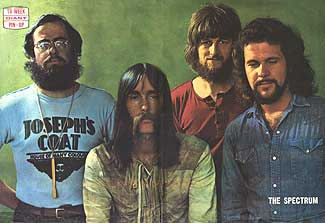 Left: A
1971 TV
Week
pinup of 'The Spectrum' with new drummer Ray Arnott
Left: A
1971 TV
Week
pinup of 'The Spectrum' with new drummer Ray Arnott
One of Ray Arnott's first major gigs with Spectrum, a typical
engagement of the time, was 31 October 1970 when Spectrum played a Jimi
Hendrix/Janis Joplin Memorial at the TF Much Ballroom, with Sons Of The
Vegetal Mother, Lipp Arthur, Adderly Smith Blues Band – a
show historically notable as one of
the first official appearances by the Vegetals’ new offshoot,
Daddy Cool.
As the 1971 opened, all the hard slog paid off handsomely when
"I'll Be Gone" (b/w "Launching Place Part II")
was released as Spectrum’s debut single in January 1971.
Heralded by Mike’s unforgettable harmonica intro,
"I’ll
Be Gone" announced the arrival of both Spectrum as a major new
band and Mike Rudd as a significant new songwriter. It is without
question one of the greatest Australian pop-rock songs ever written.
Mike’s lyric is timeless, simple but eloquent -- a wistful,
almost fatalistic observation of life on the road and the elusiveness
of love and fortune. With its loping country-blues feel, the easy,
swinging backbeat from Mark and Bill, and interlocking guitar and
electric piano by Mike and Lee, "I'll Be Gone" became
an immediate hit, racing up the charts to became the national #1 in
February 1971 and spending 20 weeks in the charts.
Its success was considerably assisted by one of Australia's
classic early promotional films, created by
musician and film maker Chris Lofven (who also made
the clip for Daddy Cool's Eagle Rock soon after). The simple but
evocative monochrome film
clip, which cost the princely sum of $300, was filmed around
Tullamarine and features brief glimpses of Mike's wife
Helen and their young son, Chris, who also appears on the front cover
of Spectrum Part One.
The single was actually an edited (3:28) mono version of the
full-length (4:24) stereo master, and at the time the full version was
only ever released on vinyl on a compilation album, Go-Set
Pop Poll Awards 1971. The longer version is finally became
available on
CD on the Raven Records Spectrum compilation in the early 1990s and is
now included on the Aztec resissue of Spectrum Part One.
The song is justly regarded as a
classic, and is generally credited as the flagship of the new era in
Australian rock that began in 1970-71. ("I'll Be Gone"
and "Launching Place" were later covered on the LP The
Good Earth by Manfred Mann's Earth Band,
which at that time included of former Procession
guitarist Mick Rodgers.)
The flipside, "Launching Place Part II" is a
very curious piece. It’s much more in keeping with the rest
of the Spectrum oeuvre -- the intense, powerdrive
minor-key introduction is led by some fine organ work from Neale, and
the song proper and contains some of Rudd’s strongest early
writing. By Mike’s account "Launching Place" Parts I
and II were written to promote the Launching Place
Festival in late 1970, but the lyrics of Part II
read as a rather savage attack on the naiveté of the
prevailing peace-and-love festival ethos. Lines like "Doctor,
doctor, take your shoes off, dance around in sheep manure",
are typical of Mike’s black humour, he makes it
sound like an altogether
unappealing event and there’s even more disturbing imagery in
the last verse:
"The world no longer is a virgin, empty
sockets blankly stare
and children making love to children, children
making love to children”.
We can only wonder what the Launching Place organizers made of
all this!
As noted above, Spectrum had recorded the tracks for their
debut album prior to Mark Kennedy's departure. Spectrum Part
One, produced by Howard Gable, engineered by the
illustrious team of Ern Rose and Roger Savage, was released in April
1971. With a noble disdain for commercial considerations, the group
refused to let EMI include "I'll Be Gone" on the
LP, a decision that had Mike scratching his head in later years:
"It's still a matter of some disbelief
for myself that we didn't include I'll Be Gone on
that album. I'm sure it couldn't happen these days. EMI probably made
that rule after we'd sent that album out. It probably would have sold a
lot more copies. Still, 'I'll Be Gone' has had a
marvellous life. When it became a big hit we refused to
let EMI include it on the album, and they were silly enough to humour
us. We were so underground we didn't know what was going on in the real
world. Our heads were right under the ground."
Still, the decision was understandable in the context of the
time -- "I’ll Be Gone" was quite different
from the rest of the music on the album, and it evidently
didn’t reflect the direction they wanted to follow. Even
without the hit single, the album did extremely well, reaching
#10
in Melbourne and #13 nationally. As a debut album it's a tremendously
assured piece of work, and it’s a great snapshot of how
Spectrum sounded on stage at the time. Three decades on, Spectrum
Part One has barely dated. Virtually recorded live, the
performances are tight and strong, and the production -- sparse,
understated and well balanced -- has really helped the album to last.
There is no unnecessary studio trickery, and the mix favours a dry and
very 'present' sound on most of the instruments, with spacious reverb
on the vocals - a marked contrast to the echo-drenched, infinitely
overdubbed extravaganzas that were becoming de-rigueur in prog-rock
circles.
"Spectrum Part One was
basically what we'd been playing live; it was the basic feel of the
band. It was a live recording. There wasn't much overdubbing, pretty
much that was it."
With a nod to Ross Wilson, the album kicks off with a jarring
and discordant introduction, leading into Spectrum’s stately,
atmospheric reading of Ross's "Make Your Stash" -- a
track dating from Ross's recent stint in London with Procession. Wilson
recorded his own
version not long after, on Daddy Cool's second LP Sex Drugs,
Rock’n’Roll: Teenage Heaven, but the
Daddy Cool version is a much more frenetic arrangement that shows the
unmistakable influence of Frank Zappa. If the melody sounds
familiar
it’s because Ross Wilson lifted it straight out the 'Jupiter'
section of Gustav Holst's famous orchestral suite The Planets.
Another Party Machine connection comes with the closing track, "Mumbles
I Wonder Why", which was co-written by Mike and Ross
Hannaford. The highlights of the record are probably the two extended
pieces, the classic "Superbody" –- which
still stands one of Spectrum’s best tracks -- and "Fiddling
Fool", which clock in at over 9 and 12 minutes respectively.
The emphasis is on texture, atmosphere and dynamics, rather than on
production tricks or attention-grabbing solos, and it's one of the
reasons the record has worn so well -– and it has to be
acknowledged that Lee Neale’s keyboard work on both these
longer tracks is quite outstanding.
One of the most distinctive features of Spectrum was their
unrivalled ensemble playing, and their attention to dynamics, light and
shade, and the texture of the music. In Spectrum, Mike began playing a
Fender Stratocaster. He was one of the few electric lead guitarists in
Australia to use a fingerpicking style, rather than a plectrum, and he
quickly grew to understand the unique character of the 'Strat' sound,
and used it to full advantage. Mike explained to how
his playing style evolved:
"After I finished with the Party Machine
and tearfully forsook bass-playing, I looked at the prospect of
resuming guitar. I decided that the possibility was that I might have
to cover a little more than just rhythm (which was my specialty with
the Chants) and I was daunted. "Why not just be different and avoid
invidious comparisons with far more accomplished guitarists?" I
thought. So I dropped the pick. My first guitar was an L-series Strat
which I strung with medium gauge
strings (akin to fencing wire in tension and feel) and this largely
dictated the tone. Then, as now, I favoured the neck pick-up and still
managed to sound pretty peaky. I used Strauss solid-state
amps.”
Bill Putt is one of the heroes of the bass. His
Fender
bass sound is deep, rich, full and incredibly satisfying to the ear --
the perfect bass sound in my
opinion. His playing is authoritative and always spot-on: no frills,
always
totally in sync with the drums, but never dull.
Similarly, Lee Neale has to be given his due as one of the all-time
great Australian rock organists. His
keyboard work is thoughtful, subtle yet distinctive, the antithesis of
the ‘look-at-me’ theatrics of a Rick Wakeman or
Keith Emerson, and his sense of tone and feel, and the overall
intelligence and sensitivity of his playing is outstanding.
He’s a great accompanist as well as a great soloist, which is
a rare commodity. Mark Kennedy shows plenty of the form that soon made
him one of Australia’s most in-demand session drummers. Check
out his superb polyrhythmic drumming in the central section of
"Superbody",
or his exquisite cymbal fills at the end of the intro to "Drifting",
and you’ll hear exactly what we’re talking about.
Hot on the heels of Spectrum's single success, the two Rosses,
Wilson and Hannaford, stormed up the Australian charts with Daddy Cool and their classic
single "Eagle Rock". Daddy Cool and Spectrum embarked
on a joint national tour in mid-1971, which included performances at
the Aquarius
Festival of University Arts in Canberra. The tour highlighted
the differences between the styles of -- and audience reactions to --
the two bands. The experience of the joint tour might have given them
added impetus for the formation of Spectrum's alter ego in October
1971. Interviewed during the tour, Mike offered this observation on the
situation, and on supposed rivalry between the bands:
"While we've found success with a
commercial record, people have found out we're not what we appear to
be. They've started appreciating us for all that we're doing now. Daddy
Cool gauge their audiences completely differently. Their audience jumps
around and screams out, and if that doesn't happen it's a bad audience.
But for us, if they're just sitting there we know it's good. It's a
feeling, not an open response. We have to follow our audience but Daddy
Cool's comes to them. I think they're the best rock'n'roll band in
Australia. We don't resent their success at all, we just resent
ignorant audiences."
After the tour, Spectrum checked into Bill Armstrong's Studios
in Melbourne and spent all of September recording the tracks for their
next album, using Armstrong's newly installed 16-track recorder -- the
first of its kind in Australia. With the new LP in the can,
Spectrum set about addressing
their economic woes and reorganising themselves as a performing unit.
Realising that their lengthy and complex material was precluding them
from getting bookings on the lucrative dance and pub circuit, they
created a set of simpler, dancier music, using a pared-down stage
setup. He re-christened the band as Indelible Murtceps
for the purpose, thus allowing Spectrum to continue on its progressive
course while
enabling them to supplement their income with the Murtceps gigs.
Spectrum's second single, released in October, was a brooding
Ray Arnott song called Trust Me, a song he had
performed with Company Caine.
It should be noted that, as with almost all the Spectrum (and Ariel)
45s, the single version of Trust Me is a different
recording to the version which appeared on their next LP –
it’s not an edited version of the album track, as
is sometimes stated. Unfortunately it failed to chart, perhaps being
too down-beat for audiences used to the 'happier' sound of "I'll
Be Gone".
January 1972 was a high point in Spectrum's career, with two
major events that month. The first was the release of their landmark
second album – Milesago,
the very first
true Australian 'rock' double-album and only the second 'popular double
album ever released in this country (the first was Doug Ashdown's Age of Mouse in
1970). Milesago
is, quite simply, a masterpiece. The luxury of being able to spread the
music across
four sides allowed for much greater scope and diversity in the songs
and arrangements, but they did not sacrifice the organic,
improvisational feel of their live performances, and the result is by
no means
self-indulgent. Even at their most expansive, economy was always a
watchword in Spectrum’s music -- unlike so many
“prog” Albums of the era, there’s no
“filler” material here, and nary a wasted note
throughout. Milesago is chock-full of great
moments, with several superb new extended tracks including the title
track, the brilliantly ironic "What The World Need’s
Now
(Is A New Pair Of Socks)" -- a dig at the peace-and-love schtick of the
Bacharach-David hit -- the sombre "Fly Without
Its Wings", the epic four-part suite "The Sideways
Saga", and a new, six-minute version of Ray Arnott’s
"Trust Me". Once again, the production is fairly dry
and warm, capturing the essential Spectrum sound but this time the
16-track facilities
allow far greater fidelity and permitted the addition of extra layers
to the arrangements, and it has to be said that Milesago
is still a superb-sounding record. It’s also the only
Spectrum album to feature outside players -- a brass section
arranged and led by sax player Jeremy Noone (Vegetals,
Co. Caine, Daddy Cool) with Simon Wettenhall on tuba and Steve Miller
on trombone. The music press was full of praise, and it even received a
highly favourable review from English music bible NME
on its release in England. It reached #16 on the LP charts in January
1972. It was originally
released in a textured cover, but later pressings were issued in a
gloss-laminated
flat cover. Its distinctive hallucinogenic collage was one of the first
major album covers created by Go-Set
staff artist Ian
McCausland, who rapidly became the leading Australian cover
and poster artist of the period.
The other major event for Spectrum in January 1972 was their
appearance at the
historic first Sunbury
Festival over the Australia Day Weekend. They played as both
Spectrum and Murtceps, and their performances were recorded for
EMI’s Sunbury live double LP. As Spectrum, they took up the
whole of side two of
the album with their extended renditions of "Some Good Advice"
and "I'll Be Gone", and the Murtceps cuts included
were "We Are Indelible", "Be My Honey"
and "But That's Alright".
Milesago’s opening track "But
That's Alright" (b/w "Play A Song That I Know")
was the third Spectrum single, released in February '72, but in spite
of its considerable commercial appeal, it failed to chart. Once again,
the single was a different and shorter version of the track that
appeared on the album. To promote it Spectrum made a rare TV appearance
on Happening ’72; regrettably they had to
mime to the single, but fortunately this rare glimpse of the band on
video has survived and still exists in the archives of Channel 0 in
Melbourne.
As both Spectrum and Indelible Murtceps the group gigged
consistently throughout 1972; they were commonly billed under both
names, and usually played alternating sets of the relevant material.
Despite the poor commercial showing of the previous Spectrum Singles,
Murtceps surprisingly scored a top-40 hit in Melbourne with their
jaunty single Esmaralda in May 1972 -- again, a
different version from that on the Murtceps LP.
A few months later they recorded a full LP under the Murtceps
banner, called Warts Up Your Nose. It’s
also notable as featuring engineering credits by all of
Armstrong’s “Big Four” recording
engineers of the period – Ern Rose, Roger Savage, John French
and John Sayers.
The album featured a brown cardboard cover (delightfully suggestive of
the old "plain brown wrapper" pornography jokes) and it sported a
quaint cover cartoon by Mike. Evidently, Murtceps was providing some
much-needed light relief for the band, and thematically, most of the
album was replete with
sexual and toilet humour, with tracks like In The Bog,
Blue Movies Made Me Cry, Hand Jive, Snap Crackle And...
There was also a re-recorded version of the single tracks We
Are Indelible -- Mike's ironic commentary on the band's
commercial fortunes -- and Esmaralda, a tribute
to an overworked “working girl”, in a similar vein
to the Small Faces’ Rene).
Mike: "We had a lot of
fun with the Warts Up
Your Nose album. It lent
itself to some quaintly bizarre notions, I suppose. It's an amusing
album."
With his typically bent sense of humour, Mike's writer credits
on the album were given as "My Crudd". Notwithstanding the comical
aspects, the album is a solid achievement and one of that’s
much loved by those who know it. It also contained a real gem as its
centerpiece -- the epic, 13-minute dope-smokers' anthem, Some
Good Advice, one of Mike's most enduring and enjoyable
songs. It's a perfect example of the Spectrum/Murtceps sound, and the
interlock between Mike's guitar and Lee's electric piano on the main
riff, rippling over the relentless chugging of Bill and Ray’s
rhythm section, is pure magic.
Around this time, Spectrum also contributed material for an
obscure detective film called Dalmas by Bert
Dehling, who later directed the feature
Pure Shit. Snap Crackle And...
from Warts was apparently the only track actually
used in the film, but they also recorded at least one other
instrumental piece Dalmas (Theme) which eventually
surfaced on EMI's ROYGBIV compilation in 1984
(although this track does not appear on the Ghosts
CD).
Mike: "We never even
saw the finished film. It had what you might call a 'limited pubic
release'. We basically jammed to the images we saw at a preview
screening and that was about it. I'm sure we didn't even get paid for
it."
Sadly, Warts Up Your Nose was to be Lee
Neale’s swansong -- he suffered some form of breakdown
shortly after the album was completed and left the band in September
1972. Regrettably, this fine player abandoned the music scene for good,
dropping completely out of sight, and to this day not even Mike and
Bill know anything about Lee’s whereabouts, or what became of
him after leaving Spectrum.
Neale was replaced by Canberra keyboard player John
Mills, and Spectrum continued playing regularly. They
recorded their third studio album, Testimonial
early in 1973. This marked a change in sound, and a shift to a new
producer, New Zealand born Peter
Dawkins, who later went on to considerable acclaim as the
producer of Dragon, among his many other
achievements. Testimonial was eventually released
in July 1973 and reached #12 in August that year, and a single
Indelible
Shuffle/Ray’s Boogie was also released but
apparently did not chart. Ironically, by the time Testimonial
finally hit the stores, Mike’s new band Ariel was already hitting the
charts with their debut single.
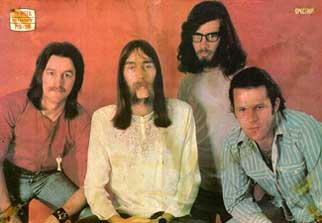
Right: a 1973 TV
Week pinup of The 'Mark III' Spectrum lineup with new
keyboard player John Mills (second from right)
After the brilliance of the previous two Albums, and the loss
of Lee Neale, its not surprising that Testimonial
comes off as a somewhat less impressive effort, and even Mike admitted
that the band had begun to run out of steam by the time it was recorded:
"Testimonial was a
pretty low-key album. To me a lot of the inventiveness of the band is
missing. Homesick Valium Blues nearly goes comatose
at the end. There's not much humour in that album. I seem to think
there were signs that the guts were falling out."
How long Spectrum might have continued is anybody’s
guess, but unfortunately the death-knell for this wonderful band
sounded in March 1973 when Ray Arnott announced he was leaving to join
Wilson and Hannaford's new band
Mighty Kong. Feeling that they couldn’t maintain
the spirit of the original group, Mike decided to break up the band and
start afresh. Spectrum played their farewell concert on the 15 April
1973 at the Dallas Brooks Hall in Melbourne. The set list spanned the
whole of their career and included the previously unrecorded Essay
In Paranoia, a six-part suite that had been a longtime staple
of their live shows. Happily, the concert was recorded and it was
released in December 1973 as the superb double-LP, Terminal
Buzz, engineered and mixed by Roger Savage
and John Sayers. The album's iconic cover, a visual
pun on the title, shows an hugely enlarged half-tone image of a fly
impaled on a pin. (Flies seem to have been something of a lyrical
preoccupation
for Mike).
"Terminal Buzz still
sounds good. It has terrific atmosphere. We were a live band after all,
and the songs on that album stand up pretty well."
In a fitting valedictory, "I'll Be Gone" was
chosen as the final rock single to be played on 3AK
-- once Melbourne's top-rating pop station -- before it switched to a
so-called "Beautiful Music" format on 1 June 1973.
After Spectrum ...
Messrs Rudd, Putt and Mills launched their new band Ariel in mid-1973. Like Spectrum,
they enjoyed critical acclaim and a strong cult following but had only
limited commercial success. Although some of Australia’s most
distinguished players passed through the ranks -- drummers Nigel
Macara (Tamam Shud)
and John Lee (
The Dingoes), guitarists Tim Gaze (Tamam
Shud,
Kahvas Jute), Harvey James (ex-Mississippi,
and later of Sherbet) and
Glyn
Mason (Chain, Copperwine)
-- the band was dogged by frequent lineup changes and, like Spectrum,
they were virtually ignored by radio after their first single.
After the demise of Ariel in 1977, Mike and Bill formed a
series of bands -- Instant Replay, The
Heaters, W.H.Y. and Number 9.
Spectrum reunited several times, beginning with a national reunion tour
in 1984 (with Ray Arnott), but for most of the late 80s and early 90s
Mike and Bill effectively withdrew from regular live performance. In
the mid-90s’ Spectrum and Ariel both occasionally reformed
for gigs in Melbourne, including
a reunion of Ariel’s Rock’n’Roll
Scars lineup, with Harvey James and John Lee (who sadly died
not long after). But for most of this period Mike
was obliged to keep a low profile, due to the illness and eventual
death of his wife Helen.
Mike and Bill re-emerged in the final episode of the 1998 ABC
music series “Hessie's Shed”,
hosted by former Crowded House drummer
Paul Hester. The pair were in top form, with Mike's
voice -- and wit
-- as fine as ever. Interviewed by Hester, Bill enthused about his home
studio, and Mike used the occasion to announce that they were 'back'.
They performed two numbers, backed by Hester and his band -- what Mike
wryly described as a 'morning-after’ version of the perennial
I'll Be Gone (with Bill on second guitar), plus one
newly-written number.
Since then the lads have been gigging regularly. In July 1999
Spectrum performed at the launch of Ian McFarlane's Encyclopedia
of Australian Rock & Pop, an apposite choice, and
not only just because of their stature -- Spectrum was reportedly the
first band that McFarlane ever saw live. Over the last couple of years,
the new three-piece Spectrum has made a welcome return to regular gigs
around Melbourne and environs, with drummer Peter "Robbo"
Robertson, who was introduced to them by Ross
Ryan and Broc O'Connor of GI
Studios, (where they recorded their Spectrum Plays The Blues
CD).
Besides gigging, Mike and Bill have re-released the first two
Ariel albums on their own label (see Discography) and thanks to Aztec
Music Spectrum
Part One has finally been given its long-overdue
re-issue on CD. And don't forget that you can buy the recent
Spectrum/Mike and Bill CDs, the Ariel and Spectrum reissues,
fetching
t-shirts and much more from Mike and Bill's glamorous, informative and
typically tongue-in-cheek website.
Discography
Until 2007, the only Spectrum/Murtceps
material officially released on CD was the excellent Raven CD
compilation Ghosts:
Post Terminal Reflections,
which is a revised version of the awkwardly titled 1980s EMI
compilation Red-Orange-Yellow-Blue-Green-Indigo-Violet.
Happily, Aztec Music reissued Spectrum
Part One (with bonus tracks) on CD during 2007, and Milesago is
scheduled for release in 2008.
Copies of the original LPs can still be found; Milesago
is the easiest to obtain, but according to Ian McFarlane Spectrum
Part One
is now hard to find and commensurately expensive and Testimonial and Terminal Buzz are
now hard to find. It's worth noting that the LP and
CD versions of the Raven compilation
album contain somewhat different track listings and
different versions of tracks they share in common. This is a particular
issue when collecting Spectrum and Ariel, since the band habitually
recorded alternate versions of songs for release as singles, rather
than editing the album versions. The versions of "Trust Me",
"We Are Indelible" and "Esmeralda" on the ROYGBIV collection are the 7"
edits, whereas the Ghosts
collection uses the
album versions. ROYGBIV also includes "Dalmas (Theme)"
and "Stay Another Day", which were not included on Ghosts.
Given that both were compiled by Glenn A. Baker, this was no
doubt done with collectors in mind.
Mike and Bill have re-released the first two Ariel
albums on their own
RareVision label, and have delighted fans with a long-awaited CD
release of their aborted Jellabad
Mutant project, a rock opera which
was intended as their second LP but which was rejected by EMI; all are
available form their website.
It has to be said
that the absence of the Spectrum albums (and many other recordings)
from the shelves is
a shameful indictment of EMI Australia and symptomatic of their
disgraceful lack of interest in their Australian artist
roster of the '60s and '70s, a problem that has been compounded
by repeated instances in which artists such as Spectrum and
Ross Ryan have discovered that master tapes of their 70s recordings
have been "lost" by the company. Fortunately, reissue label Aztec Music
has stepped into the breach and we can look forward to many superb
re-releases of sought-after Australian music from this fertile period.
Singles
as Spectrum:
May 1971
"I'll Be Gone" / "Launching Place Part II"
(Harvest HAR-9329)
Aug. 1971
"Trust Me" / "Going Home"
(Harvest HAR-9505)
Oct. 1971
"But That's Alright" / "Play a Song That I Know"
(Harvest HAR-9667)
Mar. 1990
"You Just Can't Win" (Spectrum) / "Make it Begin" (Sons of the Vegetal
Mother)
(From the Vault # 7)
(shared disc with Sons of the Vegetal Mother)
flexidisc 7" distributed to
subscribers to From the
Vault magazine
as Indelible Murtceps:
Apr. 1972
"Esmeralda" / "We Are Indelible"
(Harvest HAR-9837)
1973
"Indelible Shuffle" / "Ray's Boogie" (EMI 10218)
Albums
1971
Spectrum Part One
(Harvest SHVL-601) LP
re-issued on CD by Aztec
Music (AVSCD026), 2007
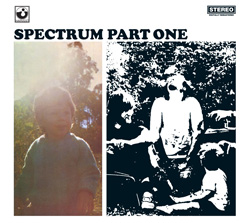
Side 1:
"Make Your Stash" (Ross Wilson) 4.09
"Fiddling Fool" (Rudd) 12.28
Side 2:
"Superbody" (Rudd) 9.12
"Drifting" (Rudd) 3.23
"Mumbles I Wonder Why" (Mike Rudd - Ross
Hannaford)
5.51
Bonus Tracks on CD:
- "Launching Place, Part I" (original Australian Harvest single, mono)
- "I'll Be Gone" (single edit)
- "Launching Place, Part II" (B-side: original German Harvest single,
stereo)
- "I'll Be Gone" (full-length version)
- "Launching Place, Part II"
(Psycho-Psychedelic version)
- "I'll Be Gone" (original acetate demo, ono)
- "You Just Can't Win" (original
acetate demo, mono)
Mike Rudd - guitar, vocals, recorder
Lee Neale - organ, piano, vocals
Mark Kennedy - drums, percussion
Bill Putt - bass
Producer: Howard Gable
Engineers: Ern Rose,
Roger Savage
1971
Milesago
(Harvest SHDW-5051)
2LP
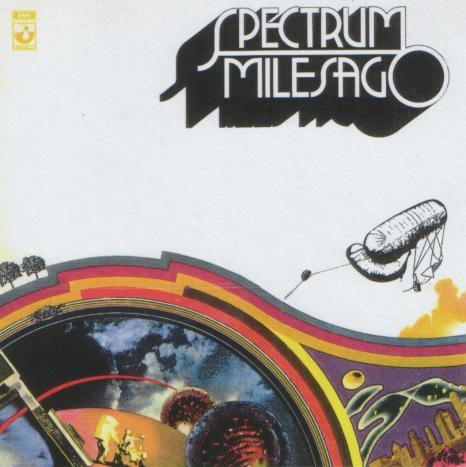
"But That's Alright" (Rudd) 4.20
"Love's My Bag"
4.14 (Rudd)
"Your Friend and Mine" 7.22
(Arnott-Rudd)
"Untitled"
4.30 (Rudd)
"Play a Song That I Know" 3.45 (Rudd)
"What the World Needs (Is A New Pair Of
Socks)" 7.30
(Rudd)
"Virgin's Tale"
3.30 (Rudd)
"A Fate Worse Than Death" (Rudd)
"Tell Me Why"
1.47 (Rudd)
"The Sideways Saga"
- 1. "The Question" 1.06 (Rudd)
- 2. "The Answer" 2.14 (Rudd)
- 3. "Do the Crab" 4.55 (Rudd)
- 4. "Everybody's Walking Sideways" 2.42 (Rudd)
"Trust Me"
6.05 (Arnott)
"Don't Bother Coming Round" 3.23 (Rudd)
"Fly Without Its Wings" 10.07 (Rudd)
"Mama, Did Jesus Wear Makeup?" 2.10
(Rudd)
"Milesago" 7.14 (Rudd)
Michael Rudd - Vocals, Acoustic &
Electric Guitar,
Recorder
Lee Neale - Piano, Electric Piano, Organ, Harpsichord, Vocals
Bill Putt - Bass Guitar
Ray Arnott - Drums, Tympanies, Tibetan Ding-a-ling, Vocals
Arrangements scored by Jeremy Noone
Jeremy Noone, David Clarke - saxes
Steve Miller - trombone
Simon Wettenhall - tuba
Recorded at Bill Armstrong's Studio,
September 6-9, 15, 22,
29-30, 1971
Produced by Howard Gable
Engineered by John
Sayers
Cover art & album design - Ian
McCausland
Photography - David
Porter
20 Jan. 1973 (as
The Indelible Murtceps)
Warts Up Your Nose (EMI HMV OCSD7597)
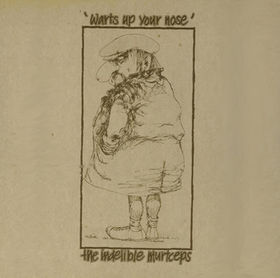
"Be My Honey" (My Crudd)
"Blue Movies Make Me Cry" (My Crudd)
"Esmeralda" (My Crudd)
"Excuse Me Just One Moment" (My Crudd)
"Hand Jive" (Arnott-Putt)
"In the Bog" (Neale)
"Pie in the Sky" (Arnott-Crudd)
"Some Good Advice" (My Crudd)
"Stay Another Day" (My Crudd)
"We Are Indelible" (My Crudd)
"Snap, Crackle and ..."
Produced by Howard Gable
Engineers - Ern Rose, Roger Savage, John Sayers, John French
Studios - Armstrong's, South Melbourne; TCS, Richmond
1973
Testimonial
(EMI SOELP 10081/2) 2LP
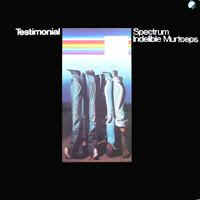
"Hot Rocket" (Arnott-Rudd)
"I Think I Missed the Station" (Rudd)
"Indelible Shuffle" (Rudd)
"It Would be Nice" (Arnott)
"Ray's Boogie" (Arnott)
"Real Meanie" (Rudd)
"Singing the Blues" (Rudd)
"Who is Bugging You?" (Rudd)
"Homesick Valium Blues" (Rudd)
Produced by Peter
Dawkins
1973
Terminal Buzz (EMI EMC 2503)
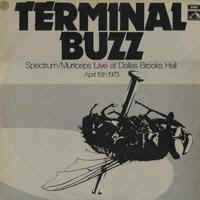
"Crazy Song/Goodbye" (Rudd)
"Essay in Paranoia" (Rudd)
"I Want to Know" (McLeod)
"I'll be Gone" (Rudd)
"Superbody" (Rudd)
"What the World Needs (Is A New Pair Of
Socks)" (Rudd)
Produced by Peter Dawkins
1984
Red Orange Yellow Green
Blue Indigo Violet
(EMI EME1100) LP
[no
image available]
"I'll Be Gone" (Rudd) - single edit
"Launching Place Pt II" (Rudd)
"Make Your Stash" (Ross Wilson)
"Drifting" (Rudd)
"But That's Alright" (Rudd)
"Love's My Bag" (Rudd)
"Trust Me"
(Arnott) - single edit
"Esmeralda" (My Crudd)
"Stay Another Day" (My Crudd)
"We Are Indelible" (My Crudd)
"Indelible Shuffle" (My Crudd)
"Some Good Advice" (My Crudd)
"Dalmas (Theme)" (Rudd)
Compiled and annotated by Glenn A. Baker
1991
Ghosts: Post-Terminal
Reflections (Raven RVCD18) CD
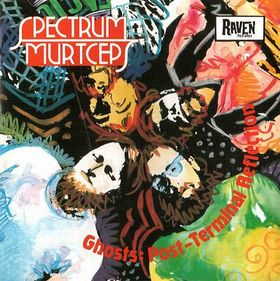
"I'll be Gone" (Rudd) - long version
"But That's Alright" (Rudd)
"Drifting" (Rudd)
"Esmeralda" (My Crudd) - single version
"Fly Without its Wings" (Rudd)
"Launching Place Part II" (Rudd)
"Love's My Bag" (Rudd)
"Make Your Stash" (Ross Wilson)
"Superbody" (Rudd)
"Trust Me" (Arnott) - single version
"We Are Indelible" (My Crudd)
- single version
"What the World Needs (Is A New Pair Of
Socks)" (Rudd)
"Some Good Advice" (My Crudd)
Compiled and annotated by
Glenn A. Baker
Spectrum on YouTube
References / Links
mikeruddbillputt.com
Mike & Bill's History
http://www.mikeruddbillputt.com/History/History_page.htm
Glenn A. Baker
liner notes to EMI LP EME-1100 and Raven CD RVCD18
Ian McFarlane
- Spectrum article in From The Vault (Vol.2 No.3,
1990)
- Spectrum article in Freedom Train (Vol.
1, Issue 3, 1996)
- Encyclopedia of Australian Rock & Pop
(Allen & Unwin 1999)
Noel McGrath
Australian Encyclopedia Of Rock (Outback Press,
1978)
Mike Rudd
email to Paul Culnane, December 2000
Chris Spencer, Zbig Nowara & Paul McHenry
Who's Who of Australian Rock (Five Mile Press,
2002)
Special thanks to Mike and Bill and Paul Culnane, and
a
resounding "hats off” to Glenn A. Baker, Ian
McFarlane and Bruce Sergent.







